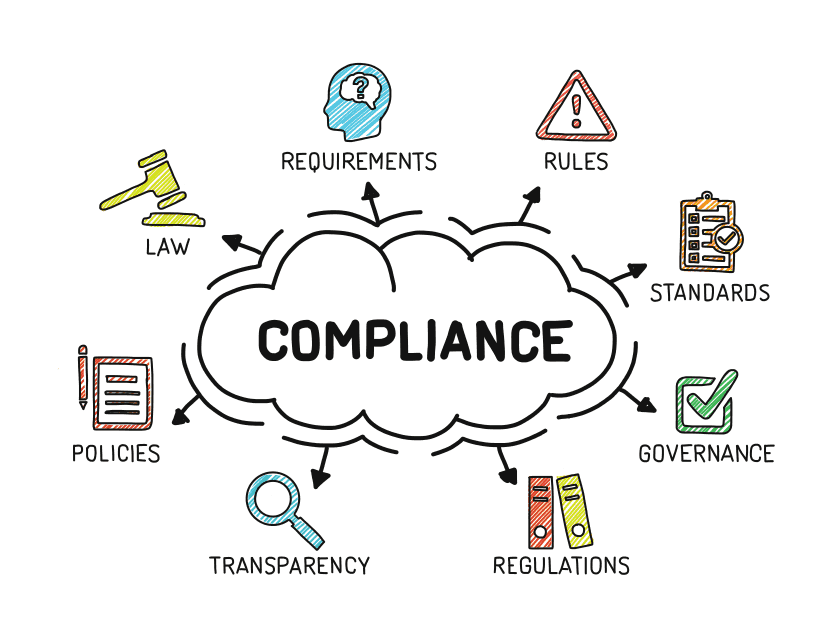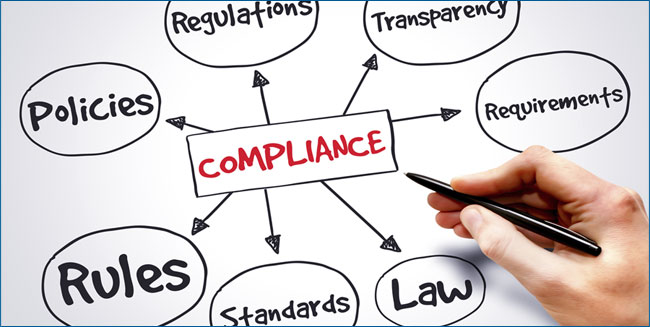Health Care Regulation Compliance And Quality Management
Healthcare organizations are subject to numerous regulations and standards to ensure the safety and quality of patient care. Compliance with these regulations is crucial as it not only helps in preventing legal repercussions but also promotes trust and confidence among patients. In this post, we will discuss the importance of healthcare regulation compliance and quality management, and how it plays a vital role in delivering exceptional patient care.
Why is Healthcare Regulation Compliance Important?
Ensuring compliance with healthcare regulations is essential for organizations to maintain the integrity of their operations and protect patient well-being. Here are the key reasons why healthcare regulation compliance is crucial:

1. Patient Safety: Healthcare regulations are developed to safeguard patient safety by establishing standards and protocols. Compliance with these regulations ensures that patients receive the highest quality of care, minimizing the risk of errors and adverse events.
2. Legal Compliance: Failure to comply with healthcare regulations can lead to severe legal consequences for organizations. This includes hefty fines, lawsuits, and even the revocation of licenses. By maintaining regulatory compliance, healthcare organizations can avoid legal troubles and protect their reputation.
3. Data Security: With the increasing use of digital technology in healthcare, protecting patient information has become paramount. Compliance with data protection regulations, such as the Health Insurance Portability and Accountability Act (HIPAA), ensures the confidentiality, integrity, and availability of patient data, reducing the risk of data breaches and unauthorized access.
Importance of Quality Management in Healthcare
Quality management in healthcare focuses on continuous improvement and ensuring that patients receive effective, safe, and person-centered care. It involves implementing quality measures, monitoring performance, and evaluating outcomes. Here's why quality management is essential in healthcare:

1. Improved Patient Outcomes: By implementing robust quality management practices, healthcare organizations can enhance patient outcomes and experiences. This includes reducing complications, minimizing hospital-acquired infections, and improving overall patient satisfaction.
2. Cost Reduction: Quality management helps in identifying areas of waste, inefficiency, and unnecessary resource utilization. By streamlining processes and eliminating redundancies, healthcare organizations can reduce costs while maintaining high-quality care.
3. Regulatory Requirements: Quality management plays a crucial role in meeting regulatory requirements. By adhering to quality standards set by regulatory bodies, healthcare organizations can ensure compliance and avoid penalties or sanctions.
Subheading 1: Key Components of Healthcare Regulation Compliance
Effective healthcare regulation compliance relies on several key components. Here are the essential elements that contribute to compliance success:
- Policy and Procedure Development: Healthcare organizations should have well-defined policies and procedures in place to address regulatory requirements. This includes creating policies related to patient privacy, data security, accreditation standards, and more.
- Training and Education: Ensuring that healthcare providers and staff members receive comprehensive training on regulatory compliance is crucial. Training programs should cover topics such as patient rights, infection control, ethical guidelines, and documentation requirements.
- Audit and Monitoring: Regular audits and monitoring processes allow healthcare organizations to identify compliance gaps and rectify them promptly. This includes conducting internal audits, reviewing documentation, and implementing corrective actions.
- Reporting and Documentation: Maintaining thorough documentation of compliance activities is critical. It includes documenting policy changes, staff training records, incident reporting, and any actions taken to address non-compliance.
- Continuous Improvement: Healthcare organizations should foster a culture of continuous improvement to ensure ongoing compliance. This involves regularly reviewing and updating policies, revising procedures based on feedback, and staying up-to-date with evolving regulations.
Subheading 2: Benefits of Healthcare Regulation Compliance
Compliance with healthcare regulations offers several benefits for healthcare organizations. Let's explore some of the advantages:
- Enhanced Patient Trust: When patients know that a healthcare organization follows strict compliance standards, it builds trust and confidence. Patients feel assured that their privacy and well-being are prioritized.
- Improved Reputation: Compliance demonstrates an organization's commitment to high-quality care and ethical practices. This results in an improved reputation within the healthcare industry and the community it serves.
- Better Operational Efficiency: Implementing compliance measures often leads to improved operational efficiency. By streamlining processes, reducing errors, and optimizing resource utilization, healthcare organizations can achieve better overall performance.
- Competitive Advantage: Compliance can give healthcare organizations a competitive edge by differentiating them from non-compliant competitors. Patients and referring physicians are more likely to choose a compliant organization for their healthcare needs.
FAQs (Frequently Asked Questions) about Healthcare Regulation Compliance
Q1: What are the most common healthcare regulations that healthcare organizations must comply with?
A1: Some of the most common healthcare regulations include the Health Insurance Portability and Accountability Act (HIPAA), the Affordable Care Act (ACA), the Joint Commission accreditation standards, and the Centers for Medicare and Medicaid Services (CMS) regulations.
Q2: Does compliance only apply to large healthcare systems?
A2: No, compliance with healthcare regulations applies to organizations of all sizes, including small clinics, individual practices, and independent healthcare providers. Every healthcare entity is responsible for adhering to the relevant regulations.
Q3: How can healthcare organizations stay updated with evolving regulations?
A3: Healthcare organizations can stay updated with evolving regulations by subscribing to industry newsletters, participating in webinars or conferences, joining professional associations, and regularly reviewing the websites of regulatory bodies.
Conclusion:
Healthcare regulation compliance and quality management are fundamental aspects of providing safe and high-quality care. By ensuring compliance with regulations and implementing effective quality management practices, healthcare organizations can improve patient outcomes, protect patient data, avoid legal consequences, and enhance their reputation within the healthcare industry.
Reforming Health And Care Regulation
regulation healthcare health care professional standards explained nursing touch right reforming regulated latest good doodle icons public
Regulation Guidelines | Smaulgld
 Image Source : smaulgld.com
Image Source : smaulgld.com regulation smaulgld navigation
The Purpose Of A Compliance And Ethics Program
 Image Source : www.mednetcompliance.com
Image Source : www.mednetcompliance.com compliance regulatory training business program requirements ethics management compliant ada corporate dropshipping bitcoin safety risk non healthcare purpose health start
Regulation And Compliance
regulation regulatory local compliance regulations experts rand authority
Rockland County Hospital Regulations Attorney | Hudson Valley
 Image Source : www.cmmrlegal.com
Image Source : www.cmmrlegal.com compliance health regulations regulation attorneys
Healthcare Quality-Diverse Health Consulting, LLC-Texas
 Image Source : www.diversehc.com
Image Source : www.diversehc.com compliance requirements regulatory accreditation quality health healthcare consulting diverse management need follow
Cosmetics Europe - The Personal Care Association :: Understanding The
 Image Source : www.cosmeticseurope.eu
Image Source : www.cosmeticseurope.eu regulation cosmetics eu europe industry care
Why Do Companies Need Information System Compliance? – Nita Sing
 Image Source : nitasing.wordpress.com
Image Source : nitasing.wordpress.com Reforming health and care regulation. Regulation guidelines. Regulation smaulgld navigation. The purpose of a compliance and ethics program. Regulation and compliance